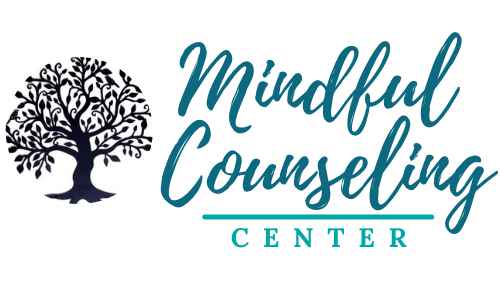Talk with us to explore your options
Therapy Modalities
Here are brief explanations of several of the therapy modalities/ approaches that our therapists utilize to help clients address their struggles and find more fulfillment in life (mainly drawn from A Glossary of Therapy Approaches – Mental Health Match and The Different Types of Counseling Styles | BetterHelp).
Contact the Mindful Counseling Center to learn more about the therapy modalities our therapists use and what mix of approaches might best suit your needs.

Cognitive Behavioral
Cognitive behavioral therapy (CBT) combines cognitive therapy and behavioral therapy and focuses on how a person's thoughts, emotions and behaviors are interconnected. By identifying the pattern among these key components, clients develop an understanding of how their thoughts, emotions and behaviors influence each other. Clients can pinpoint the destructive thoughts that create negative emotions, which fuel problematic behaviors. They then learn how to restructure the way they think to develop healthier thoughts, beliefs and behaviors.

Mindfulness-Based
Mindfulness refers to the present moment awareness of your thoughts, feelings and/or experiences. This is an ideal practice to incorporate into therapy for someone who wants to increase self-awareness and compassion, improve focus and ability to cope with life stressors, and find more meaning, inspiration and joy in life. Using mindfulness-based therapy, you work with a therapist (who you might think of as a coach of sorts) to work through your challenges, build on your strengths, and feel more present and able to make the changes you want out of life.

Strength-Based
Strength-based therapy focuses on your internal strengths and resources as tools for overcoming failures, pain and trauma. Your relationship with your therapist is collaborative, open and non-hierarchical. Your community is viewed as a support system of resources, as opposed to being viewed as an obstacle.

Emotion-Focused
Emotion-focused therapy (EFT) was founded on the belief that the exploration and understanding of our feelings are key to our healing and identity. Your emotion-focused therapist may observe patterns and help you recognize how your attachments impact your ability to have positive and healthy relationships with yourself and others. As emotional attachments vary with each individual, EFT is a great option for couples and, more specifically, in intercultural relationships.

Family Systems
Family systems therapy can help you find reconciliation within your familial relationships. Founded on the concept that each member of a family contributes to the health of the family system, family systems therapy is a great option for families that are experiencing a level of dysfunction that feels unmanageable. The guidance of a therapist could accelerate the healing of each individual, and thus the relationships that you hold with each other.

Humanistic
Humanistic therapy prioritizes you honoring your true self to live a more wholesome life. This is a great approach for someone that wants to feel supported and empowered in the unique perspective they have in viewing the world and their experiences. Many therapists utilize the client-centered approach's emphasis on unconditional positive regard or acceptance, regardless of other therapeutic theories they may use.

Solution-Focused
Solution-focused brief therapy (SFBT) concentrates on finding solutions in the present time and exploring your hope for the future to find quicker resolution for your problems. In this approach, you know what you need to do to improve you own life and, with the appropriate coaching and questioning, can find the best solutions.SFBT is used to treat people of all ages and a variety of issues, including child behavioral problems, family dysfunction, abuse, addiction and relationship problems. Though not a treatment for mental health disorders such as depression and anxiety, it may help improve quality of life for those who suffer from these conditions. (Drawn from https://www.psychologytoday.com /us/therapy-types/solution-focused-brief-therapy)

Motivational Interviewing
Motivational interviewing is a therapeutic method that helps you understand and resolve your feelings and obstacles to find the internal motivation you need to change your behavior. It is a practical, empathetic and short-term process that takes into consideration the difficulty involved in making life changes. This intervention can help you become motivated to change behaviors that are preventing you from making healthier choices. (Drawn from https://www.psychologytoday.com /us/therapy-types/motivational-interviewing)

Eclectic
Eclectic therapy describes the way many therapists work. They may begin therapy in one style and shift to another at a certain point. Each session may contain elements of a variety of therapy styles. The therapist picks and chooses from the full gamut of therapy methods, as you need them in certain situations. Using different therapies together to create their own eclectic mix takes skill, usually gained by years of experience. You might also hear this type of therapy referred to as holistic therapy or integrative therapy.
